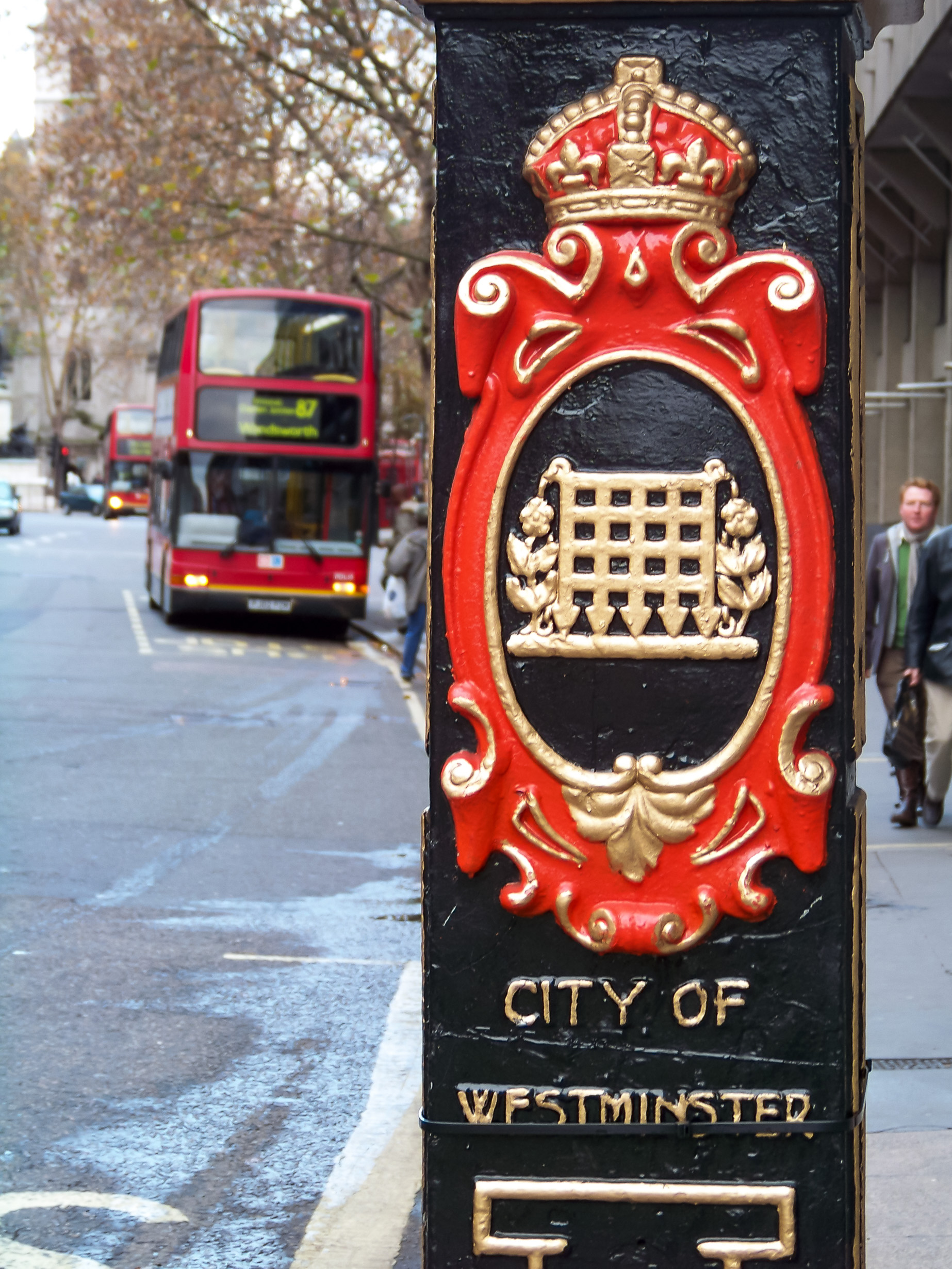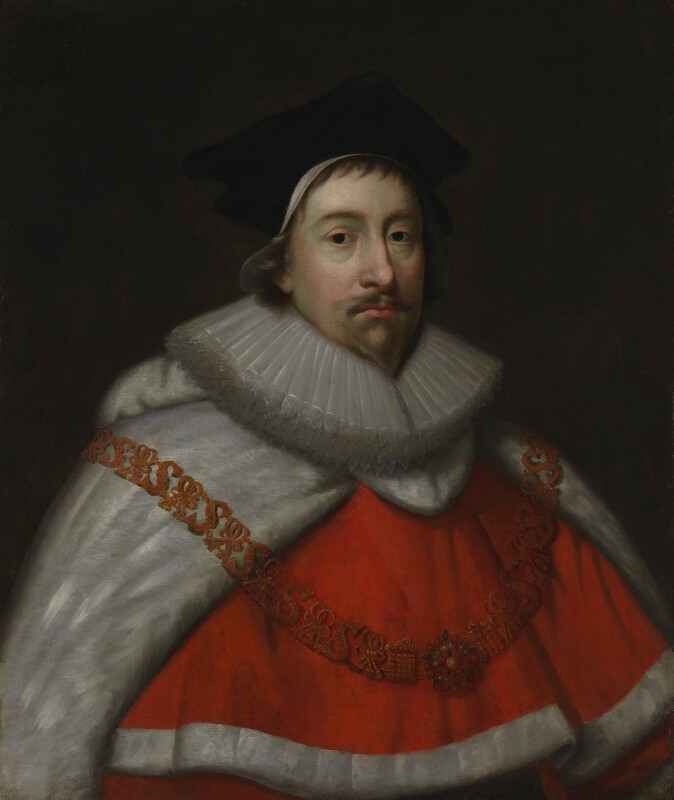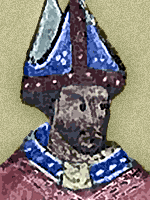|
Robert Of Lexinton
Robert of Lexinton or Lessington (died 29 May 1250) was a British judge and administrator. Biography Robert of Lexinton was a son of Richard of Lexinton (probably the first son, according to the Oxford Dictionary of National Biography, probably the second according to the Dictionary of National Biography. His father for a time administered the manor of Laxton in Nottinghamshire (formerly Lexington, from whence the family's name derived). Robert's brothers included Henry of Lexington, sometime Bishop of Lincoln, and Stephen of Lexington, a Cistercian monk and abbot of Clairvaux abbey. He made his start as a clerk to a successor of his father as keeper of the manor of Laxton, one Brian de Lisle. In 1214 he was appointed as a prebendary of the collegiate church of Southwell, and later succeeded to the barony of his father, who was alive in 1216. By 1221, he was acting as a justice in seven counties, and comes to notice in February 1221 as the author of a letter to Hubert de Burgh i ... [...More Info...] [...Related Items...] OR: [Wikipedia] [Google] [Baidu] |
Oxford Dictionary Of National Biography
The ''Dictionary of National Biography'' (''DNB'') is a standard work of reference on notable figures from British history, published since 1885. The updated ''Oxford Dictionary of National Biography'' (''ODNB'') was published on 23 September 2004 in 60 volumes and online, with 50,113 biographical articles covering 54,922 lives. First series Hoping to emulate national biographical collections published elsewhere in Europe, such as the '' Allgemeine Deutsche Biographie'' (1875), in 1882 the publisher George Smith (1824–1901), of Smith, Elder & Co., planned a universal dictionary that would include biographical entries on individuals from world history. He approached Leslie Stephen, then editor of the ''Cornhill Magazine'', owned by Smith, to become the editor. Stephen persuaded Smith that the work should focus only on subjects from the United Kingdom and its present and former colonies. An early working title was the ''Biographia Britannica'', the name of an earlier eightee ... [...More Info...] [...Related Items...] OR: [Wikipedia] [Google] [Baidu] |
City Of Westminster
The City of Westminster is a City status in the United Kingdom, city and London boroughs, borough in Inner London. It is the site of the United Kingdom's Houses of Parliament and much of the British government. It occupies a large area of central Greater London, including most of the West End of London, West End. Many London landmarks are within the borough, including Buckingham Palace, Westminster Abbey, Whitehall, Westminster Cathedral, 10 Downing Street, and Trafalgar Square. Westminster became a city in 1540, and historically, it was a part of the ceremonial county of Middlesex. Its southern boundary is the River Thames. To the City of Westminster's east is the City of London and to its west is the Royal Borough of Kensington and Chelsea. To its north is the London Borough of Camden. The borough is divided into a number of localities including the ancient political district of Westminster; the shopping areas around Oxford Street, Regent Street, Piccadilly and Bond Street ... [...More Info...] [...Related Items...] OR: [Wikipedia] [Google] [Baidu] |
Chief Justices Of The Common Pleas
Chief may refer to: Title or rank Military and law enforcement * Chief master sergeant, the ninth, and highest, enlisted rank in the U.S. Air Force and U.S. Space Force * Chief of police, the head of a police department * Chief of the boat, the senior enlisted sailor on a U.S. Navy submarine * Chief petty officer, a non-commissioned officer or equivalent in many navies * Chief warrant officer, a military rank Other titles * Chief of the Name, head of a family or clan * Chief mate, or Chief officer, the highest senior officer in the deck department on a merchant vessel * Chief of staff, the leader of a complex organization * Fire chief, top rank in a fire department * Scottish clan chief, the head of a Scottish clan * Tribal chief, a leader of a tribal form of government * Chief, IRS-CI, the head and chief executive of U.S. Internal Revenue Service, Criminal Investigation Places * Chief Mountain, Montana, United States * Stawamus Chief or the Chief, a granite dome in ... [...More Info...] [...Related Items...] OR: [Wikipedia] [Google] [Baidu] |
1250 Deaths
1 (one, unit, unity) is a number representing a single or the only entity. 1 is also a numerical digit and represents a single unit of counting or measurement. For example, a line segment of ''unit length'' is a line segment of length 1. In conventions of sign where zero is considered neither positive nor negative, 1 is the first and smallest positive integer. It is also sometimes considered the first of the infinite sequence of natural numbers, followed by 2, although by other definitions 1 is the second natural number, following 0. The fundamental mathematical property of 1 is to be a multiplicative identity, meaning that any number multiplied by 1 equals the same number. Most if not all properties of 1 can be deduced from this. In advanced mathematics, a multiplicative identity is often denoted 1, even if it is not a number. 1 is by convention not considered a prime number; this was not universally accepted until the mid-20th century. Additionally, 1 is the s ... [...More Info...] [...Related Items...] OR: [Wikipedia] [Google] [Baidu] |
Henry Of Bath
Henry de Bada (or Henry de Bathonia) (died November 1260) was an English judge and administrator. Life He began his career under his relative Hugh of Bath, who died in 1236, leaving his chattels to Henry. Henry started his administrative career as a bailiff for the Honour of Berkhamsted in 1221, succeeding Hugh as Under-Sheriff of Berkshire from 1228 to 1229. This is the last record of his career under Hugh; from then on he was entirely independent. From 1229 to 1232 he served as Under-Sheriff for Hampshire and as High Sheriff of Gloucestershire from 1232 to 1234, a time when the county was the main base for the Marcher Wars of 1233-1234. He served as High Sheriff as an agent of Peter de Rivaux, and as such required a pardon after Peters fall from grace in 1234, Peter and his close associates having been declared traitors. Career Immediately after the pardon, however, he became High Sheriff of Northamptonshire, and remained in that position until 1240 other than a two-mon ... [...More Info...] [...Related Items...] OR: [Wikipedia] [Google] [Baidu] |
Thomas Of Moulton
Sir Thomas Moulton (died 1240) was an English landowner, knight, admiral and judge during the reigns of King John and King Henry III. From a family with landholdings in the south of Lincolnshire, he was the son and heir of Thomas Moulton (died before 1198) and his wife Eleanor Boston. After initial military service, he became a senior judge and held important government positions, in the process extending his inherited estates and accumulating considerable wealth. (subscription or UK public library membership required) Career As a knight, he served in King John's forces in the Normandy campaigns of 1202–04, against Llywelyn the Great in Wales in 1211 and in Poitou in 1214. In between, he obtained administrative posts, becoming sheriff of Lincolnshire from 1205 to 1208 and serving on royal enquiries in 1213 and 1214. Siding with the rebels when civil war broke out in the First Barons' War in 1215, he was captured by the king's forces at Rochester and imprisoned at Corfe Castle. H ... [...More Info...] [...Related Items...] OR: [Wikipedia] [Google] [Baidu] |
Chief Justice Of The Common Pleas
The chief justice of the Common Pleas was the head of the Court of Common Pleas, also known as the Common Bench or Common Place, which was the second-highest common law court in the English legal system until 1875, when it, along with the other two common law courts and the equity and probate courts, became part of the High Court of Justice. As such, the chief justice of the Common Pleas was one of the highest judicial officials in England, behind only the Lord High Chancellor and the Lord Chief Justice of England, who headed the Queen's Bench (King's when the monarch was male). History Initially, the position of Chief Justice of the Common Pleas was not an appointment; of the justices serving in the court, one would become more respected than his peers, and was therefore considered the "chief" justice. The position was formalised in 1272, with the raising of Sir Gilbert of Preston to Chief Justice, and from then on, it was a formally-appointed role, similar to the positions o ... [...More Info...] [...Related Items...] OR: [Wikipedia] [Google] [Baidu] |
Thomas Becket
Thomas Becket (), also known as Saint Thomas of Canterbury, Thomas of London and later Thomas à Becket (21 December 1119 or 1120 – 29 December 1170), was an English nobleman who served as Lord Chancellor from 1155 to 1162, and then notably as Archbishop of Canterbury from 1162 until his murder in 1170. He is venerated as a saint and martyr by the Catholic Church and the Anglican Communion. He engaged in conflict with Henry II, King of England, over the rights and privileges of the Church and was murdered by followers of the king in Canterbury Cathedral. Soon after his death, he was canonised by Pope Alexander III. Sources The main sources for the life of Becket are a number of biographies written by contemporaries. A few of these documents are by unknown writers, although traditional historiography has given them names. The known biographers are John of Salisbury, Edward Grim, Benedict of Peterborough, William of Canterbury, William fitzStephen, Guernes of Pont-Sa ... [...More Info...] [...Related Items...] OR: [Wikipedia] [Google] [Baidu] |
Robert Grosseteste
Robert Grosseteste, ', ', or ') or the gallicised Robert Grosstête ( ; la, Robertus Grossetesta or '). Also known as Robert of Lincoln ( la, Robertus Lincolniensis, ', &c.) or Rupert of Lincoln ( la, Rubertus Lincolniensis, &c.). ( ; la, Robertus Grosseteste; 8 or 9 October 1253), also known as Robert Greathead or Robert of Lincoln, was an English statesman, scholastic philosopher, theologian, scientist and Bishop of Lincoln. He was born of humble parents in Suffolk (according to the early 14th-century chronicler Nicholas Trevet), but the associations with the village of Stradbroke is a post-medieval tradition. Upon his death, he was revered as a saint in England, but attempts to procure a formal canonisation failed. A. C. Crombie called him "the real founder of the tradition of scientific thought in medieval Oxford, and in some ways, of the modern English intellectual tradition". Scholarly career There is very little direct evidence about Grosseteste's education. H ... [...More Info...] [...Related Items...] OR: [Wikipedia] [Google] [Baidu] |
Eyre (legal Term)
An eyre or iter, sometimes called a general eyre, was the name of a circuit travelled by an itinerant justice in medieval England (a justice in eyre), or the circuit court over which they presided, or the right of the monarch (or justices acting in their name) to visit and inspect the holdings of any vassal. The eyre involved visits and inspections at irregular intervals of the houses of vassals in the kingdom. The term is derived from Old French ''erre'', from Latin ''iter'' ("journey"), and is cognate with errand and errant. Eyres were also held in those parts of Ireland under secure English rule, but the eyre system seems to have largely gone into abeyance in Ireland at the end of the thirteenth century, and the last Irish eyre was held in 1322. Eyre of 1194 The eyre of 1194 was initiated under Hubert Walter's justiciarship to restore royal justice following the anarchy of Prince John's rebellion. Within two months, justices on eyre had visited every shire in England. The Arti ... [...More Info...] [...Related Items...] OR: [Wikipedia] [Google] [Baidu] |
Henry III Of England
Henry III (1 October 1207 – 16 November 1272), also known as Henry of Winchester, was King of England, Lord of Ireland, and Duke of Aquitaine from 1216 until his death in 1272. The son of King John and Isabella of Angoulême, Henry assumed the throne when he was only nine in the middle of the First Barons' War. Cardinal Guala Bicchieri declared the war against the rebel barons to be a religious crusade and Henry's forces, led by William Marshal, defeated the rebels at the battles of Lincoln and Sandwich in 1217. Henry promised to abide by the Great Charter of 1225, a later version of the 1215 '' Magna Carta'', which limited royal power and protected the rights of the major barons. His early rule was dominated first by Hubert de Burgh and then Peter des Roches, who re-established royal authority after the war. In 1230, the King attempted to reconquer the provinces of France that had once belonged to his father, but the invasion was a debacle. A revolt led by William ... [...More Info...] [...Related Items...] OR: [Wikipedia] [Google] [Baidu] |
Bishop Of Lichfield
The Bishop of Lichfield is the ordinary of the Church of England Diocese of Lichfield in the Province of Canterbury. The diocese covers 4,516 km2 (1,744 sq. mi.) of the counties of Powys, Staffordshire, Shropshire, Warwickshire and West Midlands. The bishop's seat is located in the Cathedral Church of the Blessed Virgin Mary and Saint Chad in the city of Lichfield. The Bishop's residence is the Bishop's House, Lichfield, in the cathedral close. In the past, the title has had various forms (see below). The current bishop is Michael Ipgrave, following the confirmation of his election on 10 June 2016.OurCofE twitter (Accessed 11 June 2016) History [...More Info...] [...Related Items...] OR: [Wikipedia] [Google] [Baidu] |



